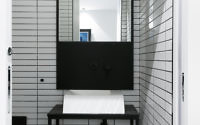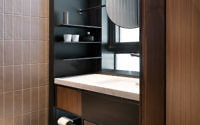Tower Apartment by Rust Architects
Tower Apartment is a 1,076 sq ft industrial home located in Tel Aviv, Israel, designed in 2018 by Rust Architects.

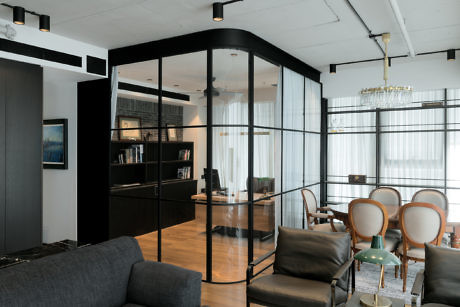
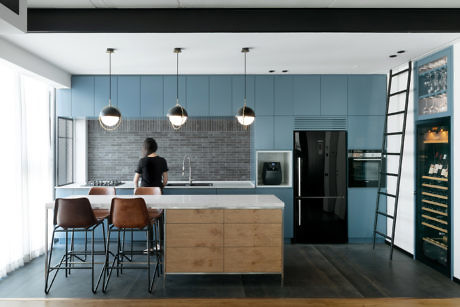
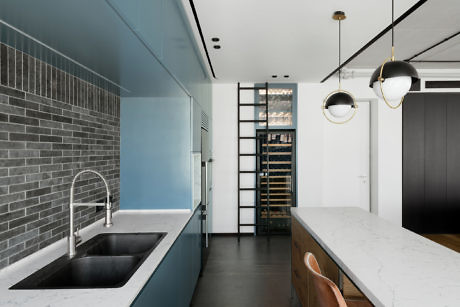
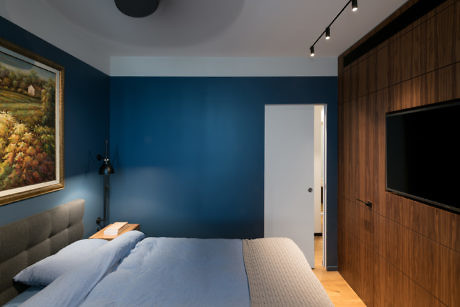
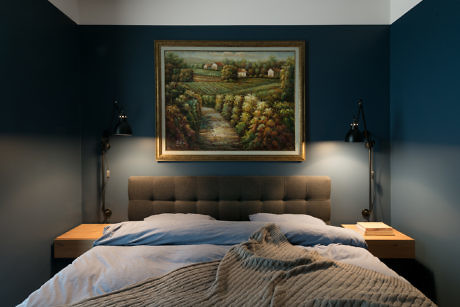
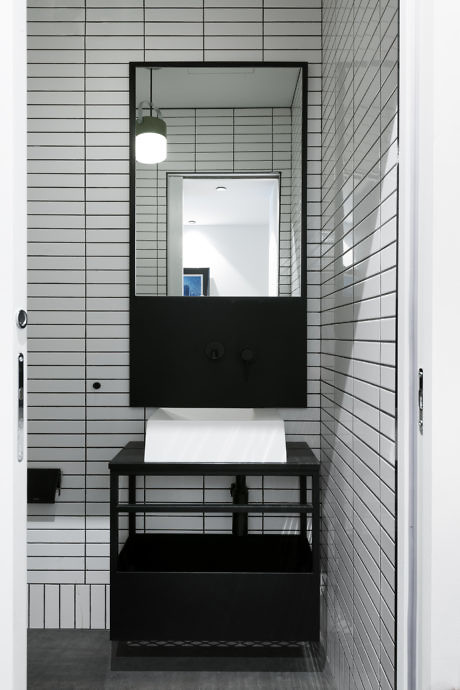
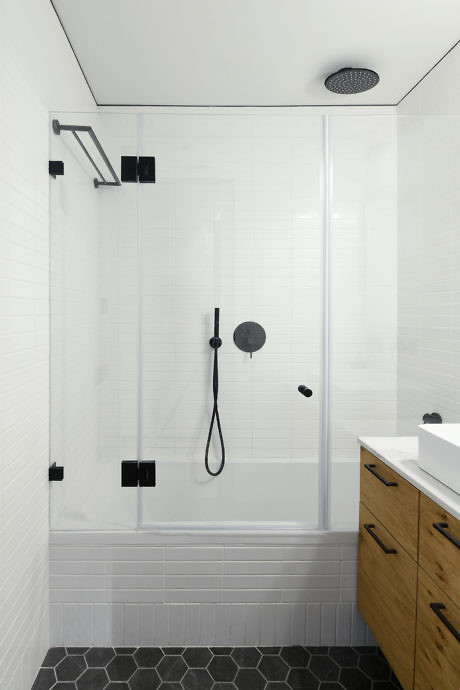
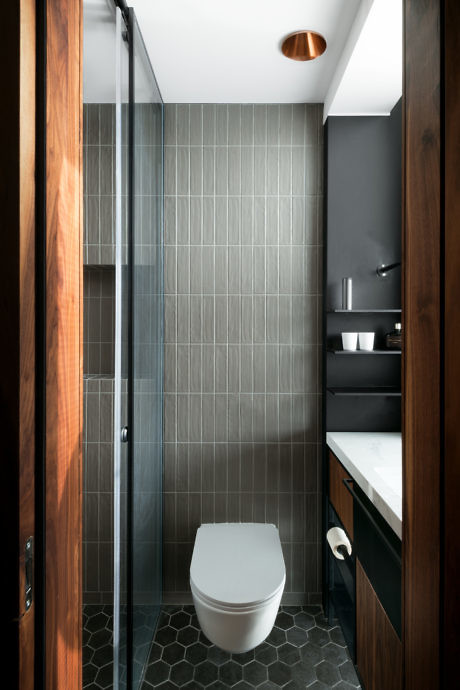
About Tower Apartment
Modern Living in Tel Aviv’s Heart
Nestled in the vibrant center of Tel Aviv, a 100 sqm (1,076 sq ft) apartment emerges within a new tower. This living space, encased in floor-to-ceiling windows, offers panoramic city views, setting a stage for an extraordinary design journey.
A Blank Canvas Transformed
Initially, the apartment presented itself as an open canvas, awaiting a transformation. The young couple owning it envisioned a multifunctional space that breathed the essence of a loft. They dreamed of blending comfort with edginess, using materials like iron, glass, and rough wood. Consequently, the studio took the helm, meticulously planning every detail from carpentry to metalwork.
Blending Old with New
Incorporating the past, antique closet doors from the grandmother’s house found new life as cabinet fronts and furniture pieces, marrying history with modernity. These old elements, alongside modern design touches, create a rich tapestry of textures. The exposed concrete ceiling showcases the lighting system, while a black iron divider and natural fabric curtains segment the working area, striking a balance between open space and cozy nooks.
Moreover, the apartment artfully conceals the bathroom and closet behind a wooden facade in the main bedroom. Iron detailing offers ingenious solutions for the bathroom, ingeniously situated next to the transparent facade, ensuring privacy and style coexist seamlessly.
A Harmonious Blend of Textures
Every choice reflects a commitment to creating a space that feels both expansive and intimate. The juxtaposition of raw materials with softer elements forges an abode that’s as comfortable as it is aesthetically compelling. This Tel Aviv apartment is not just a home; it’s a testament to the power of thoughtful design to craft spaces that resonate with the soul.
Photography by Gidon Levin
Visit Rust Architects
- by Matt Watts








